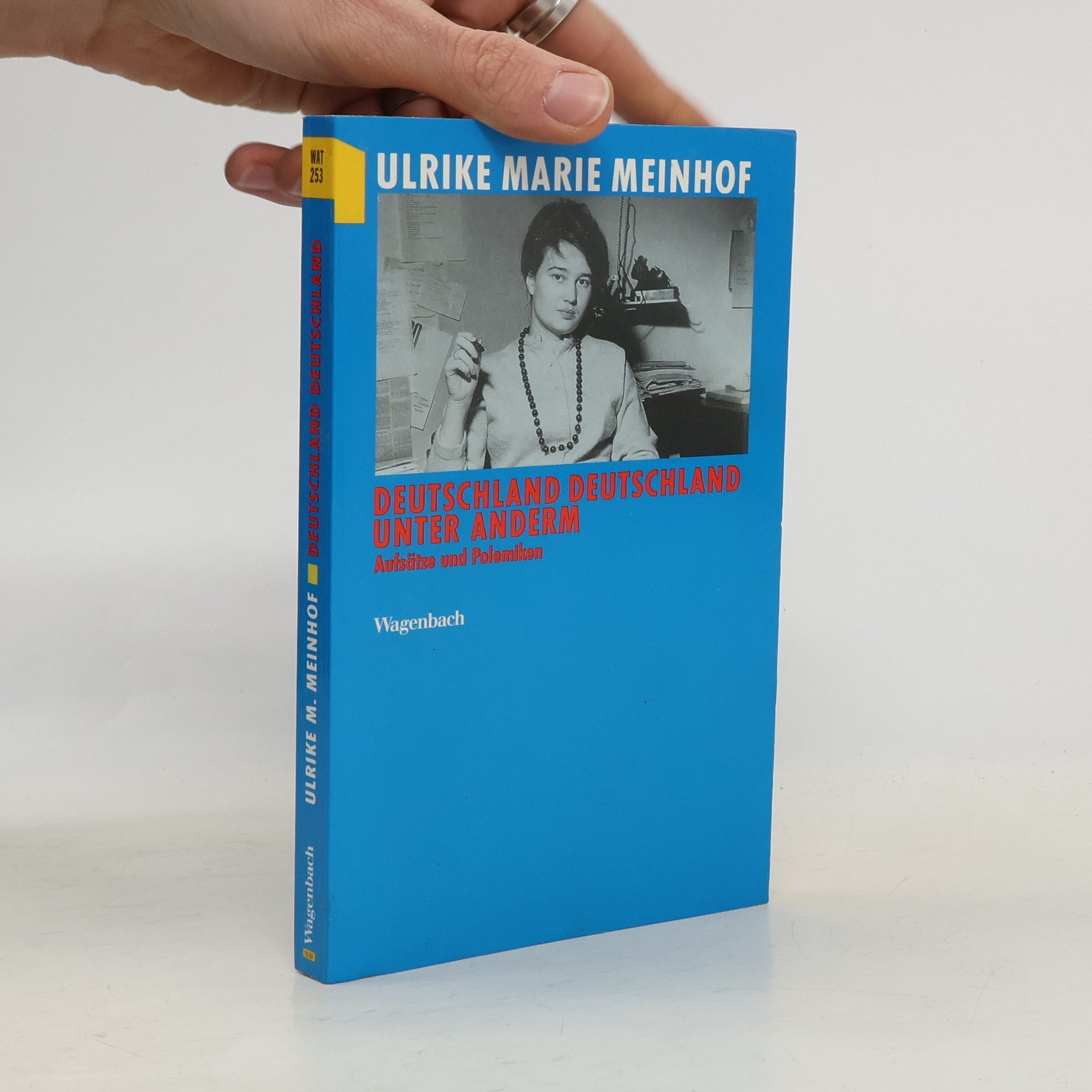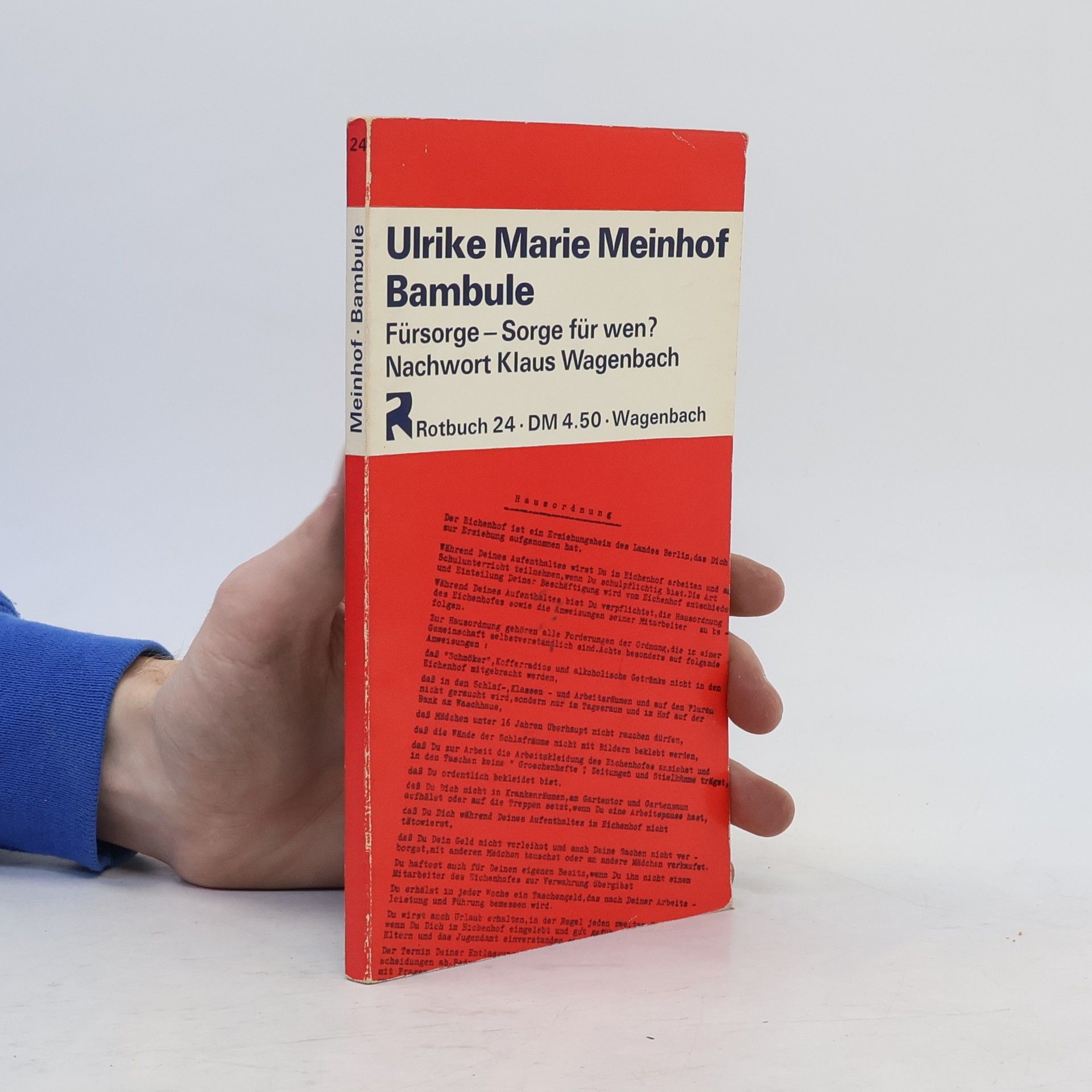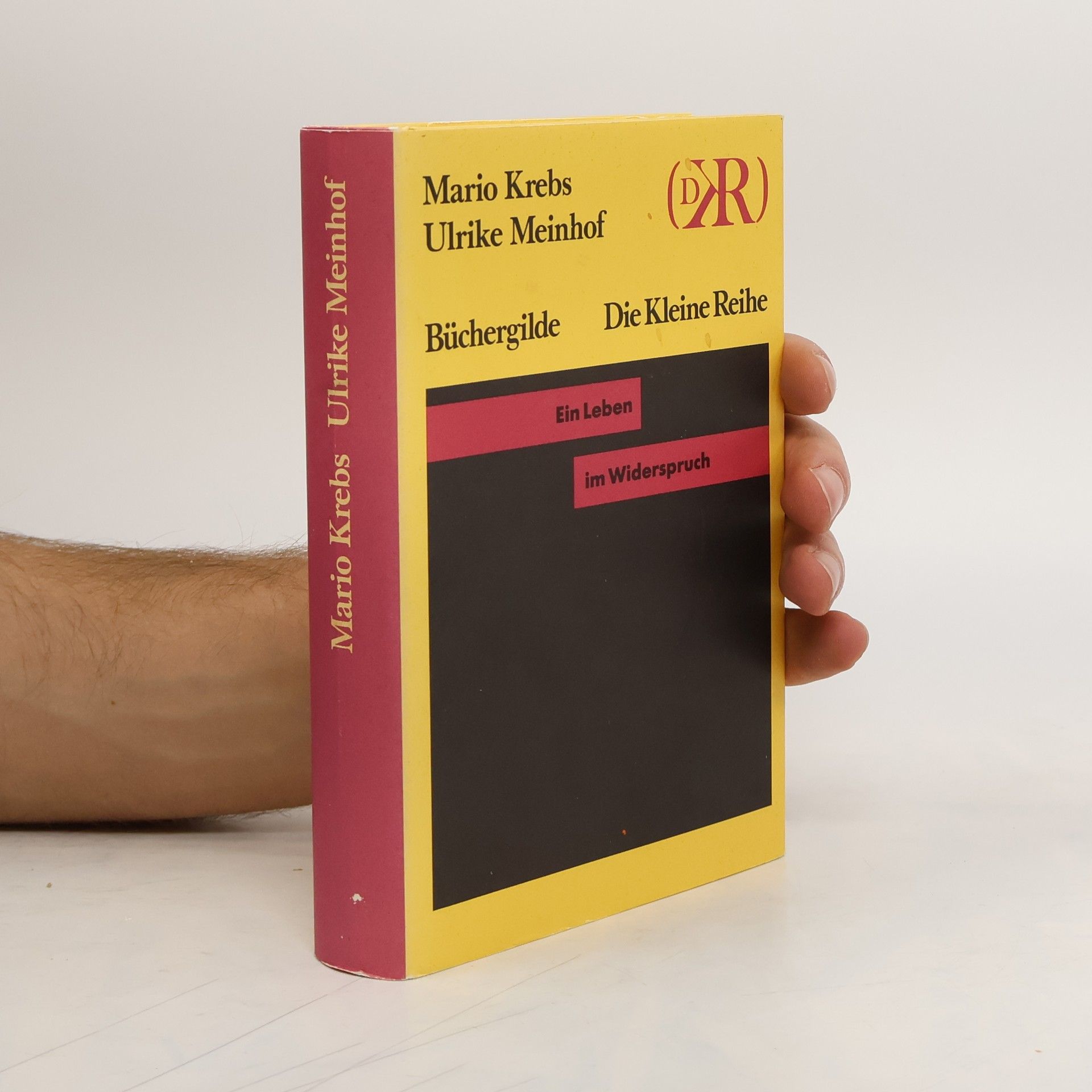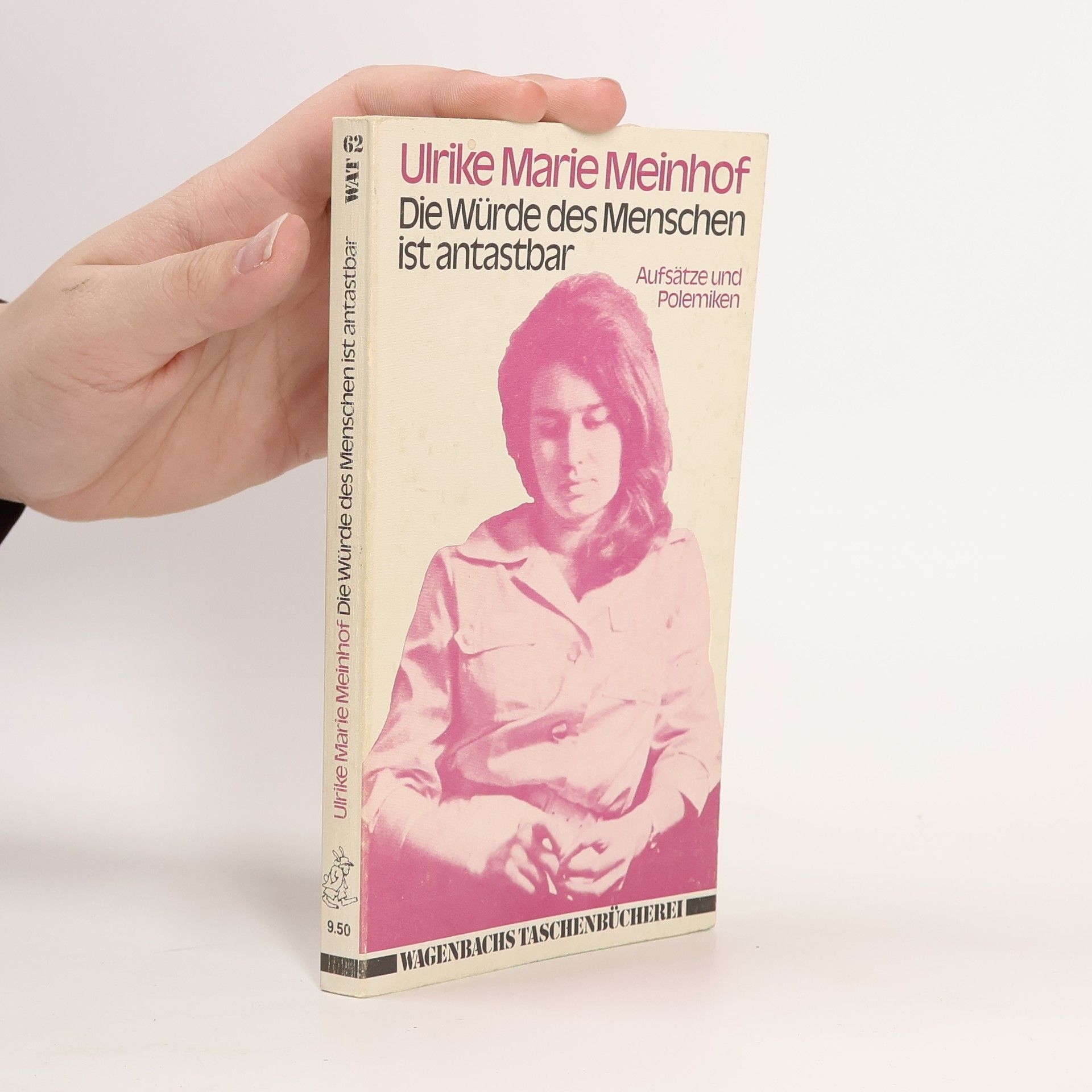Deutschland Deutschland unter anderm
- 158 pages
- 6 hours of reading
Text: German
Ulrike Marie Meinhof was a significant figure in German left-wing radicalism. She began her journalistic career at the left-wing magazine Konkret, eventually becoming its editor-in-chief. Her writings and activism were deeply critical of the societal and political landscape of her time. Meinhof's intellectual engagement and her role in radical movements made her a notable voice in postwar German history.




Text: German